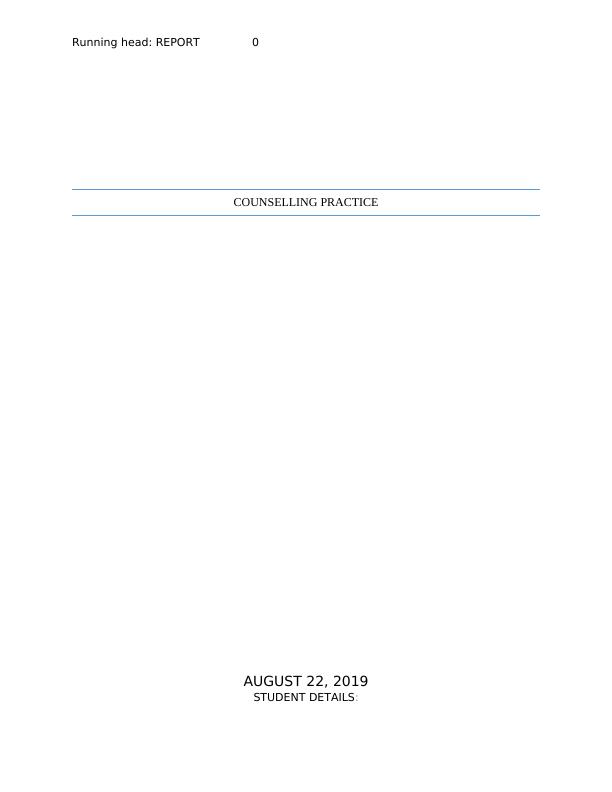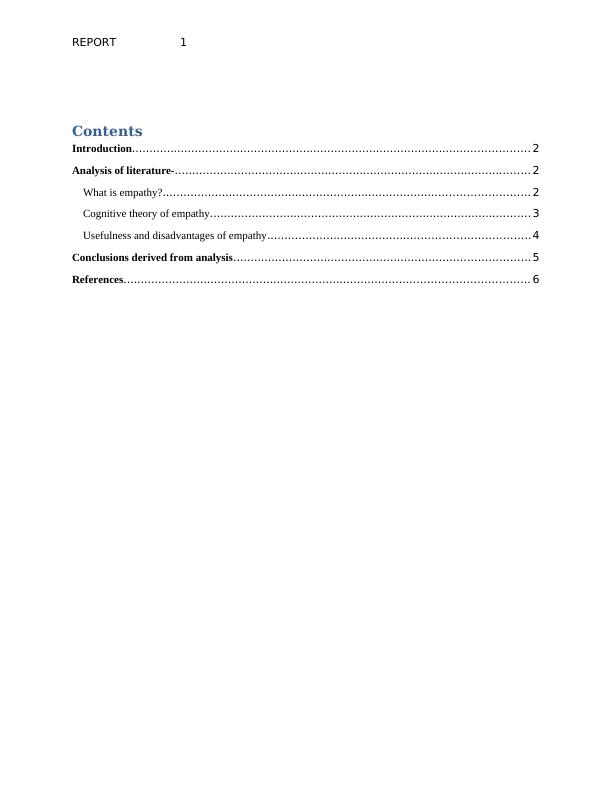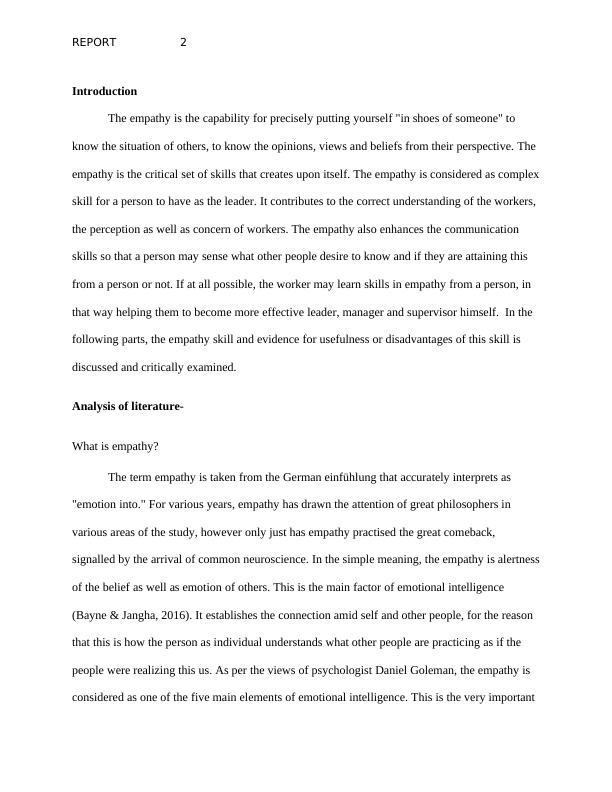Empathy in Counselling Practice: Analysis of Literature
8 Pages1853 Words343 Views
Added on 2022-10-03
About This Document
This article discusses the concept of empathy in counselling practice, including its definition, cognitive theory, and usefulness and disadvantages. The article concludes that empathy is beneficial and risky at the same time.
Empathy in Counselling Practice: Analysis of Literature
Added on 2022-10-03
ShareRelated Documents
End of preview
Want to access all the pages? Upload your documents or become a member.
Developing Effectiveness in Management and Leadership
|4
|1477
|316
Emotional Intelligence
|8
|1750
|481
Importance of Emotional Intelligence in the Workplace
|30
|4239
|246
Emotional Intelligence Theories
|12
|2647
|182
Introduction to Leadership in Business
|14
|4388
|59
Collaboration in Classroom Management | Report
|5
|1056
|57



